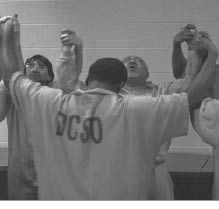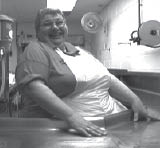Some Bets Pay Off
by M. Faust

If you can drive past those billboards proclaiming the current level of the MegaMillions jackpot without wondering what you would do with that much money, you are a much more focused person than I am. (Especially when it gets into nine figures.)
There are those who think of lotteries as a tax on the math-challenged. The odds of winning, after all, are miniscule, on a par with the chances of dying in a terrorist attack. Still, someone’s gonna win, and why can’t it be you or me?
Popular wisdom holds that the people who do win those massive jackpots are never made happy by their fortunes, or the one third that’s left after taxes carve away the bulk of it.
But is that true? In the documentary Millions (A Lottery Story), filmmaker Paul La Blanc looks at six big lottery winners to see how their lives have changed.
Two of them should be familiar to anyone who lived in New York State in the 1980s. Lou Eisenberg and Curtis Sharp were the winners of the first two $5 million Lotto jackpots in the early 1980s. They became celebrities of a sort for appearing as a team in a series of commercials promoting the lottery.

Both are now broke. Eisenberg gambled most of his money away and now lives in West Palm Beach, where he maintains a cheerful attitude and places small bets at the dog track. Sharp lives in Tennessee and works as a prison minister.
The other winners visited by La Blanc are four women of a group of 16 food service workers in a small Minnesota town who split a $95 million Powerball purse. As befits the residents of a town that considers itself a template for Garrison Keillor’s Lake Wobegon stories, they appear unchanged by their good fortune. They maintain the same routines: working the school cafeteria, raising dairy cows, hunting thrift shops for bargains and scavenging old condiment jars to use for home pickling. If there’s a change to their lives, it’s this: They all seem to laugh a lot. And who could blame them?
La Blanc, who cut his teeth on TV documentaries like The First Amendment Project: Fox Vs. Franken and The 100 Greatest Artists of Hard Rock, resists he urge to pontificate in any way about the evils or benefits of publicly run lotteries. The premise mostly serves as a chance to visit some normal people thrust into extraordinary circumstances that paradoxically spotlight their personal quirks. It’s an involving and endearing example of why documentaries are the most vital form of current American filmmaking.
Millions will be screened at 6:55pm Friday March 30 as a part of the Buffalo Niagara Film Festival, the first installment of what its founders hope will become a annual feature of Western New York’s arts programming.
Developed by Bill Cowell and Crissy Tonsi of North Tonawanda-based Captures Entertainment (Cowell is the director of the feature films Raindrops and The Maize, and the upcoming The Magic Shoe with James Garner), the BNFF runs from Monday through Saturday at various locations including the University of Buffalo, North Tonawanda’s majestic Riviera Theater and downtown’s Market Arcade Film and Arts Center. Along with screenings of short and feature films, the festival will offer practical panels with industry professionals on such aspects of filmmaking as budgeting, casting music, special effects and music. Celebrity guests will include actor-director Robert Culp, horror specialist Tom Holland (Fright Night, Child’s Play) and actor-bodybuilder Lou Ferrigno. For more information, visit www.buffaloniagarafilmfestival.com.
|
Issue Navigation> Issue Index > v6n12: One Piano, Four Hands (3/22/07) > Some Bets Pay Off This Week's Issue • Artvoice Daily • Artvoice TV • Events Calendar • Classifieds |









 Current Issue
Current Issue